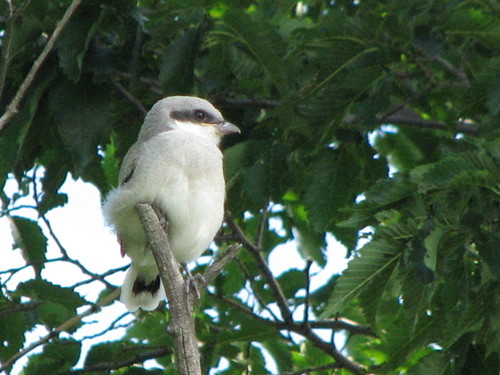The past week has been filled with report cards, exams and other end of term activities. There has been little time for birding and therefore zero time for blogging (putting blogging about birding before actual birding would be kind of silly!).
Last weekend was Father's Day and we took a day trip to the
Royal Tyrrell Museum in Drumheller. After touring the museum we drove back by a scenic route, spotting various birds along the way, including some lovely
Mountain Bluebirds in the ghost town of Wayne. With more time to explore I suspect this stretch of road is a fantastic spot for songbirds of all types, with a mix of prairie and riparian habitat.
The real highlight was in a slough on Hwy 56 just north of Hussar. We found at least 10 nesting pairs of
American Coot, some of them right by the road's edge.
We also spotted a pair of black birds flitting back and forth across the marsh, picking insects from the surface. Eventually we figured out that they were
Black Terns, a lifer for me. These birds are graceful in flight with a slightly notched tail and slender wings. They migrate out of Alberta in September, wintering as far south as Central America. Sadly their populations have been declining, due to habitat loss, over the last few decades.
Despite dodging rainstorms all day it was a pleasant prairie drive and I discovered a number of spots that I will try to return to in the summer. There was also an opportunity to go out exploring in the evening, more of which in my next post.












